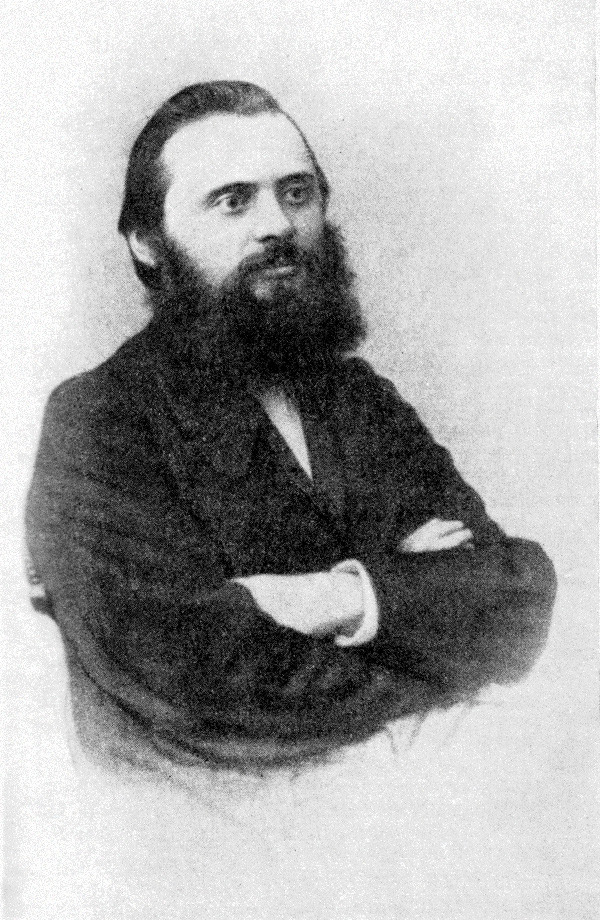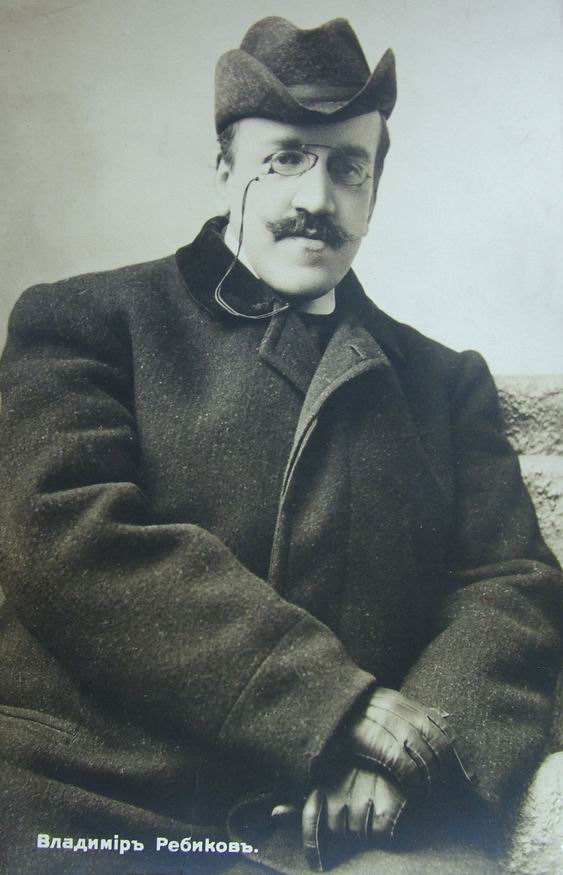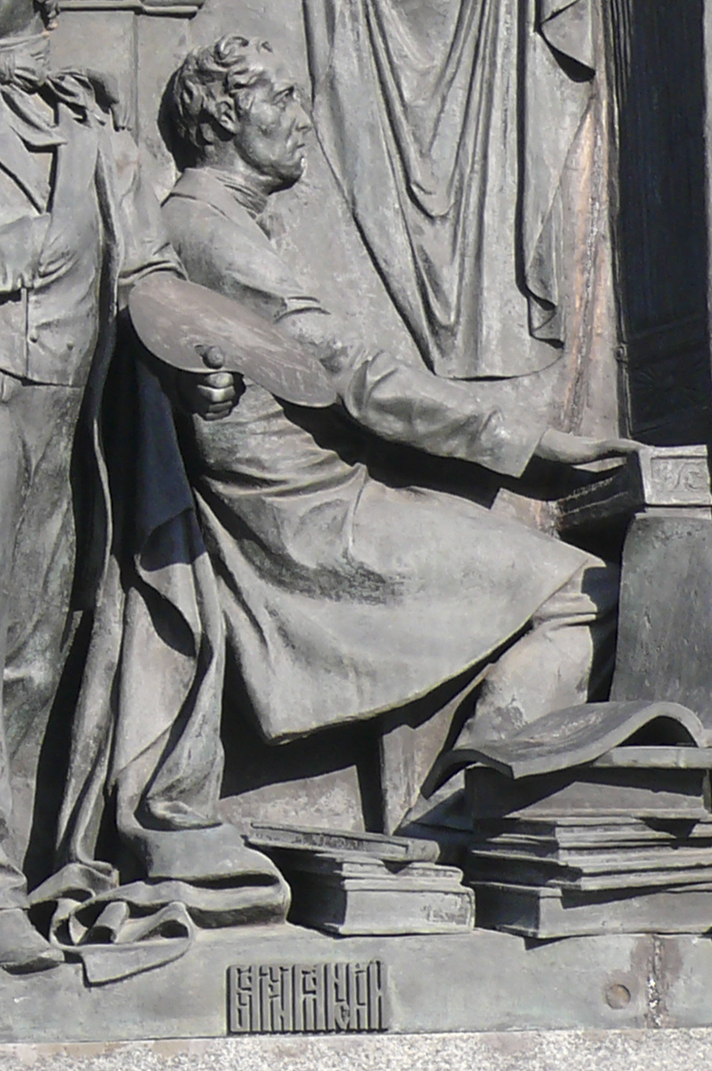|
Tschaikowsky (and Other Russians)
"Tschaikowsky (and Other Russians)" is a patter song with lyrics by Ira Gershwin and music by Kurt Weill, first performed by American comedian Danny Kaye in the 1941 Broadway musical ''Lady in the Dark''. Gershwin used the spelling "Tschaikowsky" from the German transliteration (used by German music publishers of the period) in place of the more widely accepted modern transliteration Tchaikovsky. "Tschaikowsky (and Other Russians)" is not a song in the normal sense of the term: it is a rhyming list of fifty Russian composers' names, which Kaye rattled off (in a speaking, not singing, voice) as rapidly as possible. At each performance, Kaye tried to break his previous speed record for reciting this song: consequently, it was intended to be recited ''a cappella'' (without instrumental accompaniment), as the orchestra could not keep up with him. The performance launched Kaye's career. One of the names in the song is "Dukelsky"; this is actually the birth name of Vernon Duke, an America ... [...More Info...] [...Related Items...] OR: [Wikipedia] [Google] [Baidu] |
Patter Song
The patter song is characterised by a moderately fast to very fast tempo with a rapid succession of rhythmic patterns in which each syllable of text corresponds to one note. It is a staple of comic opera, especially Gilbert and Sullivan, but it has also been used in musical theatre and elsewhere."Patter song" ''OnMusic Dictionary'', Connect For Education, Inc, accessed 2 May 2014 The lyric of a patter song generally features tongue-twister, tongue-twisting rhyming text, with alliterative words and other consonant or vowel sounds that are intended to be entertaining to listen to at rapid speed. The musical accompaniment is lightly orchestrated and fairly simple, to emphasise the text.Fiss, Chapter 7 The song is often intended as a showpiece for a comic character, usually a Bass (voice type) ... [...More Info...] [...Related Items...] OR: [Wikipedia] [Google] [Baidu] |
Wassily Sapellnikoff
Wassily Sapellnikoff (; tr. ''Vasily Lvovich Sapelnikov'') (17 March 1941), was a Ukrainian-born Russian pianist. Biography Sapellnikoff was born in Odessa. He studied at the Odessa Conservatory under Louis Brassin and Sophie Menter, and became professor of piano at Moscow Conservatory in 1897. He eventually moved to Leipzig and finally settled in Munich. He toured with Pyotr Ilyich Tchaikovsky in Germany, France and England. At his debut in Hamburg in 1888, he played Tchaikovsky's Piano Concerto No. 1 in B-flat minor with the composer conducting. This concert was a great success and a catalyst for his budding career as a concert pianist in Western Europe. He was the first to play this concerto in England. He was the dedicatee of a piano piece by Tchaikovsky. Tchaikovsky considered Sapelnikov a great talent and helped him launch his performing career, particularly in Europe. He writes in his letters to his brother Modest about the performing tour in the spring 1889, in ... [...More Info...] [...Related Items...] OR: [Wikipedia] [Google] [Baidu] |
Mily Balakirev
Mily Alexeyevich Balakirev ( , ; ,BGN/PCGN romanization of Russian, BGN/PCGN romanization: ; ALA-LC romanization of Russian, ALA-LC system: ; ISO 9, ISO 9 system: . ; – )Russia was still using Adoption of the Gregorian calendar#Adoption in Eastern Europe, old style dates in the 19th century, and information sources used in the article sometimes report dates as old style rather than new style. Dates in the article are taken verbatim from the source and therefore are in the same style as the source from which they come. was a Russian Empire, Russian composer, pianist, and Conducting, conductor known today primarily for his work promoting musical nationalism and his encouragement of more famous Russian composers, notably Pyotr Ilyich Tchaikovsky. He began his career as a pivotal figure, extending the fusion of traditional folk music and experimental classical music practices begun by composer Mikhail Glinka. In the process, Balakirev developed musical patterns that could express ... [...More Info...] [...Related Items...] OR: [Wikipedia] [Google] [Baidu] |
Nikolai Medtner
Nikolai Karlovich Medtner (; – 13 November 1951) was a Russian composer and pianist. After a period of comparative obscurity in the 25 years immediately after his death, he is now becoming recognized as one of the most significant Russian composers for the piano. A younger contemporary of Sergei Rachmaninoff and Alexander Scriabin, he wrote a substantial number of compositions, all of which include the piano. His works include 14 piano sonatas, three violin sonatas, three piano concerti, a piano quintet, two works for two pianos, many shorter piano pieces, a few shorter works for violin and piano, and 108 songs including two substantial works for vocalise. His 38 ''Skazki'' (generally known as "Fairy Tales" in English but more correctly translated as "Tales") for piano solo contain some of his most original music. Biography Nikolai Medtner was born in Moscow on 24 December 1879, according to the Julian calendar, or 5 January 1880 by the Gregorian calendar. He was th ... [...More Info...] [...Related Items...] OR: [Wikipedia] [Google] [Baidu] |
Alexander Ilyinsky
Alexander Alexandrovich Ilyinsky (; 23 February 1920) was a Russian music teacher and composer, best known for the ''Lullaby (Berceuse)'', Op. 13, No. 7, from his orchestral suite "Noure and Anitra", and for the opera ''The Fountain of Bakhchisaray'' set to Pushkin's poem of the same name. Alexander Ilyinsky was born in Tsarskoye Selo in 1859. His father was a physician in the Alexander Cadet Corps. His general education was in the First Cadet Corps at St Petersburg, and he served in the Artillery from 1877 to 1879. His music studies were in Berlin, under Theodor Kullak and Natanael Betcher at the Berlin Conservatory, and under Woldemar Bargiel at the Neue Akademie der Tonkunst. He returned to Russia in 1885, graduated from the St Petersburg Conservatory and taught at the Moscow Philharmonic Society School of Music and Drama. He resigned in 1899 and started giving private lessons. In 1905 he joined the staff of the Moscow Conservatory. His students included Vasily Kali ... [...More Info...] [...Related Items...] OR: [Wikipedia] [Google] [Baidu] |
Vladimir Rebikov
Vladimir Ivanovich Rebikov (, ); born May 31 S May 191866 - Krasnoyarsk, Siberia, Russia — died October 1, 1920 - Yalta, Crimea) was a late romantic 20th-century Russian composer and pianist. Biography Born into a family of distant Tatar ancestry, Rebikov began studying the piano with his mother. His sisters also were pianists. He graduated from the Moscow University faculty of philology. He studied at the Moscow Conservatory with N. Klenovsky, a pupil of Peter Tchaikovsky, and then for three years in Berlin and Vienna with K. Mayrberger (music theory), O. Jasch (instrumentation), and T. Müller (piano). Rebikov taught and Rebikov had successful concert tours in concerts in various parts of the Russian Empire: Moscow, Odessa, Kishinev, Yalta, as well as in Berlin, Vienna, Prague, Leipzig, Florence and Paris, where he met Claude Debussy, Oskar Nedbal, Zdeněk Nejedlý, and others. Rebikov settled in Yalta in 1909. Works and style Early works suggest the influence of Peter ... [...More Info...] [...Related Items...] OR: [Wikipedia] [Google] [Baidu] |
Dmitry Bortniansky
Dmitry Stepanovich Bortniansky (28 October 1751 – ) was a Russian composer of Ukrainian Cossack origin. He was also a harpsichordist and conductor who served at the court of Catherine the Great. Bortniansky was critical to the musical history of both Russia and Ukraine, with both nations claiming him as their own. Bortniansky, who has been compared to Palestrina, is known today for his liturgical works and prolific contributions to the genre of choral concertos. He was one of the "Golden Three" of his era, alongside Artemy Vedel and Maxim Berezovsky.Ukraine's and Russia's tangled history leads to musical conundrum hourclassical.org 2022 Bortniansky was so popular in the Russian Empire that his figure was represented i ... [...More Info...] [...Related Items...] OR: [Wikipedia] [Google] [Baidu] |
Alexander Winkler (composer)
Alexander (Gustav) Adolfovich Winkler, also Alexandre Adolfovitch Winkler (; 3 March 1865 in Kharkiv – 6 August 1935 in Besançon), was a Russian Piano, pianist, composer and music educator of German descent. Biography Winkler completed his studies in law at the University of Kharkiv, Russian Empire, in 1887 and also studied piano at the Kharkiv Music School of the Russian Musical Society, graduating in 1889. He continued to study piano with Alphonse Duvernoy in Paris, and in Vienna with Theodor Leschetizky, where he was also a composition student of Karel Navrátil. Winkler returned to the music school in Kharkiv as Professor of Piano from 1890 to 1896. On the recommendation of Leschetizky, he was invited to Saint Petersburg to teach at the Saint Petersburg Conservatory, Conservatory, where he had piano classes from 1896 to 1924, becoming Professor of Piano in 1909. [...More Info...] [...Related Items...] OR: [Wikipedia] [Google] [Baidu] |
Mikhail Glinka
Mikhail Ivanovich Glinka ( rus, links=no, Михаил Иванович Глинка, Mikhail Ivanovich Glinka, mʲɪxɐˈil ɨˈvanəvʲɪdʑ ˈɡlʲinkə, Ru-Mikhail-Ivanovich-Glinka.ogg; ) was the first Russian composer to gain wide recognition within his own country and is often regarded as the fountainhead of Russian classical music. His compositions were an important influence on other Russian composers, notably the members of The Five, who produced a distinctive Russian style of music. Early life and education Glinka was born in the village of Novospasskoye, not far from the Desna River in the Smolensk Governorate of the Russian Empire (now in the Yelninsky District of the Smolensk Oblast). His wealthy father had retired as an army captain, and the family had a strong tradition of loyalty and service to the tsars, and several members of his extended family had lively cultural interests. His great-great-grandfather was a Polish–Lithuanian Commonwealth nobleman, Wikt ... [...More Info...] [...Related Items...] OR: [Wikipedia] [Google] [Baidu] |
Arseny Koreshchenko
Arseny Nikolayevich Koreshchenko (, 18 December 1870 – 6 January 1921) was a pianist and composer of classical music, including operas and ballets. He was from the Russian Empire. Biography Koreshchenko was born in Moscow in 1870. He entered the Moscow Conservatory, graduating in 1891. He was only the second person ever to be awarded the Conservatory's Great Gold Medal; the first was one of his teachers, Sergei Taneyev, and the third was Sergei Rachmaninoff. He also studied theory under Anton Arensky. He stayed with his alma mater as a professor of harmony and also taught counterpoint at the Moscow Synodal School. He died in Kharkiv, Kharkov in 1921. List of works Opera *''Belshazzar's Feast'', Op. 7 (1 act, produced Moscow, 1892) *''The Angel of Death'', Op. 10 (2 acts, based on Mikhail Lermontov) *''The Ice Palace'', Op. 38 (based on Ivan Lazhechnikov's play; produced Moscow 1900) Ballet *''The Magic Mirror (ballet), The Magic Mirror'', Op. 39 Incidental music *''Th ... [...More Info...] [...Related Items...] OR: [Wikipedia] [Google] [Baidu] |
Dimitri Tiomkin
Dimitri Zinovievich Tiomkin (May 10, 1894 – November 11, 1979) was a Russian and American film composer and conductor. Classically trained in Saint Petersburg before the Bolshevik Revolution, he moved to Berlin and then New York City after the Russian Revolution. In 1929, after the stock market crash, he moved to Hollywood, where he became best known for his scores for Western films, including '' Duel in the Sun'', '' Red River'', ''High Noon'', '' The Big Sky'', '' Gunfight at the O.K. Corral'', '' Rio Bravo'', and '' Last Train from Gun Hill''. Tiomkin received 22 Academy Award nominations and won four Oscars, three for Best Original Score for ''High Noon'', '' The High and the Mighty'', and '' The Old Man and the Sea'', and one for Best Original Song for " The Ballad of High Noon" from the film ''High Noon''. Early life and education Dimitri Tiomkin was born in Kremenchug, Poltava Governorate, Russian Empire (today part of Ukraine). His family was of Jewish descent;St ... [...More Info...] [...Related Items...] OR: [Wikipedia] [Google] [Baidu] |
Sergei Prokofiev
Sergei Sergeyevich Prokofiev; alternative transliterations of his name include ''Sergey'' or ''Serge'', and ''Prokofief'', ''Prokofieff'', or ''Prokofyev''. , group=n ( – 5 March 1953) was a Russian composer, pianist, and conductor who later worked in the Soviet Union. As the creator of acknowledged masterpieces across numerous music genres, he is regarded as one of the major composers of the 20th century. His works include such widely heard pieces as the March from ''The Love for Three Oranges,'' the suite Lieutenant Kijé (Prokofiev), ''Lieutenant Kijé'', the ballet Romeo and Juliet (Prokofiev), ''Romeo and Juliet''—from which "Dance of the Knights" is taken—and ''Peter and the Wolf.'' Of the established forms and genres in which he worked, he created—excluding juvenilia—seven completed operas, seven Symphony, symphonies, eight Ballet (music), ballets, five piano concertos, two violin concertos, a Cello Concerto (Prokofiev), cello concerto, a Symphony-Concerto ( ... [...More Info...] [...Related Items...] OR: [Wikipedia] [Google] [Baidu] |








